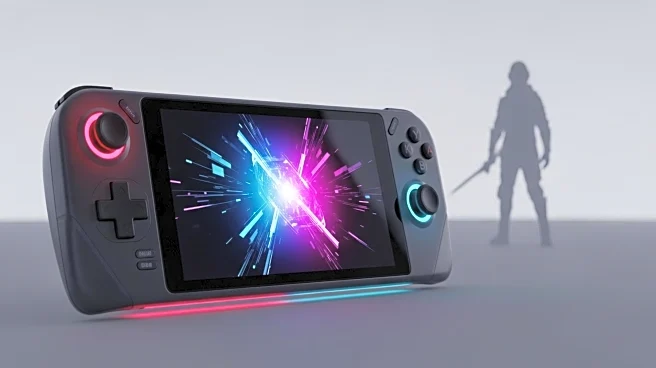What's Happening?
Atlus has announced that Persona 3 Reload will not be released on the original Nintendo Switch due to performance issues. The game was initially planned for Nintendo's original hybrid device, but the development team faced challenges in optimizing the visuals and performance, which would have required a longer development cycle and potentially delayed the release by a year. Instead, the game will be available on the Nintendo Switch 2, with the team focusing on releasing versions as close to other platforms as possible. The Switch 2 version will be available in physical form as a 'Game-Key Card' release.
Why It's Important?
The decision to exclude the original Nintendo Switch from the Persona 3 Reload release highlights the growing technological gap between older and newer gaming consoles. This move may impact Nintendo Switch owners who are unable to upgrade to the Switch 2, potentially affecting their access to new game releases. It also underscores the importance of hardware capabilities in game development, as developers prioritize platforms that can support advanced graphics and performance. This trend could influence consumer decisions regarding console upgrades and impact the market dynamics between different gaming platforms.
What's Next?
With the release of Persona 3 Reload on the Nintendo Switch 2, gamers can expect enhanced graphics and performance tailored to the newer console's capabilities. Atlus may continue to focus on optimizing games for newer hardware, potentially leading to more exclusive releases for advanced consoles. Nintendo Switch owners may need to consider upgrading to the Switch 2 to access future game releases that require higher performance standards. The gaming industry may see a shift towards prioritizing newer hardware, influencing both game development strategies and consumer purchasing decisions.
Beyond the Headlines
The exclusion of the original Nintendo Switch from the Persona 3 Reload release raises questions about the longevity and support for older gaming consoles. As technology advances, developers may face challenges in balancing the need for innovation with the accessibility of their games across different platforms. This situation highlights the ethical considerations of ensuring that gaming remains inclusive and accessible to a wide audience, regardless of their ability to afford the latest hardware.









